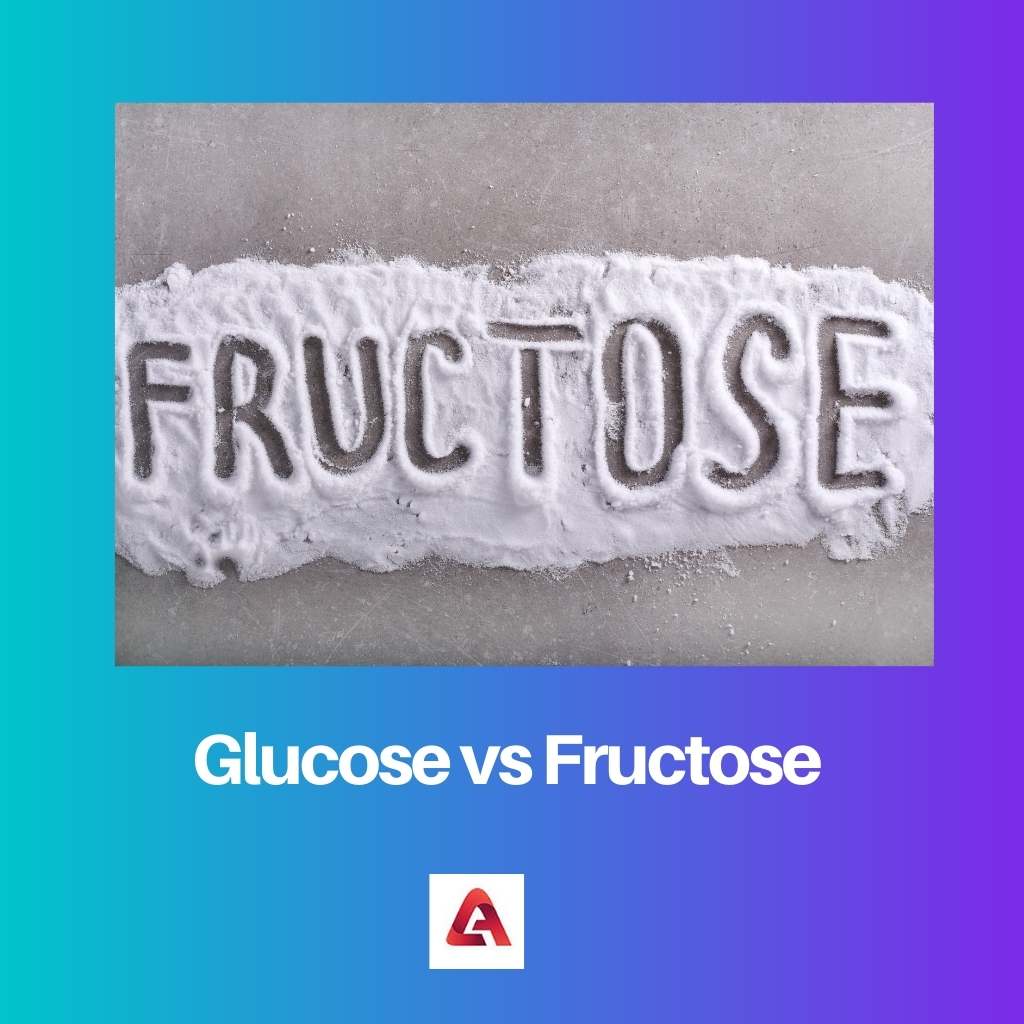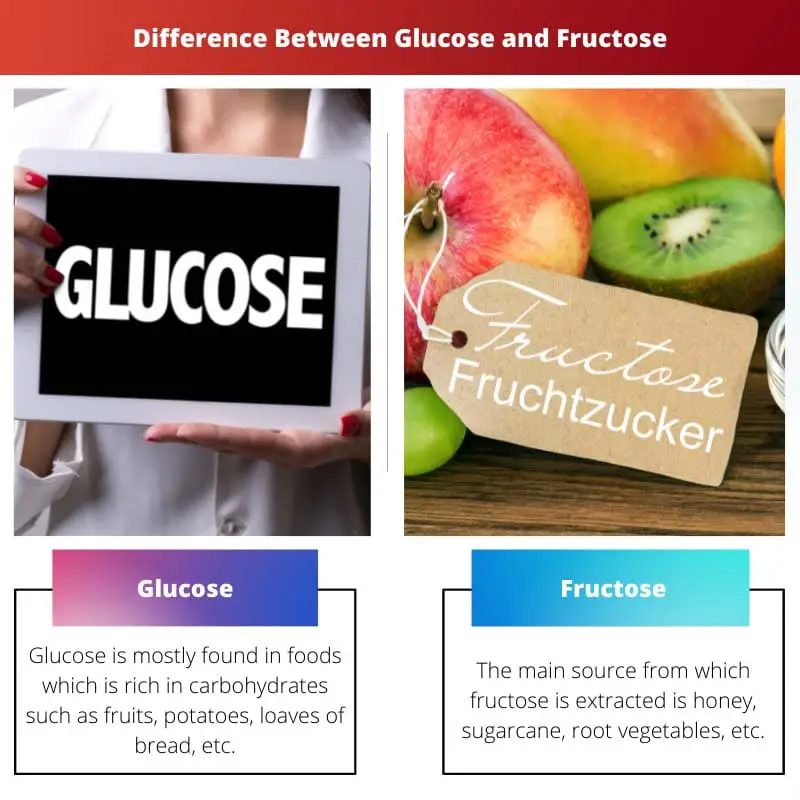There is a certain amount of sugar in our blood and body cells, and this should be maintained. Glucose and fructose are such sugar that provides requirements for the body so it can maintain its daily routine.
Key Takeaways
- Glucose is the body’s primary energy source, while fructose is a naturally occurring sugar found in fruits and honey.
- Fructose has a lower glycemic index than glucose, causing a smaller impact on blood sugar levels.
- The body metabolizes glucose and fructose differently, which is processed mainly in the liver, potentially leading to increased fat production.
Glucose vs Fructose
The difference between glucose and fructose is that glucose is acquired by breaking down bigger sugar molecules such as polysaccharides or disaccharides, while fructose can be found in the very simplest form that can be taken from multiple fruits and many vegetables. Both are different forms of natural sugar.

Glucose helps the body’s mechanism to work properly. A slight misbalance in the level of blood sugar can cause hours of discomfort.
Fructose is considered to be natural sugar extracted from the juice of fruits. It is also known as fruit sugar. The very common sources from which fructose is derived are maize, sugar beets, and sugarcane.
Comparison Table
| Parameters Of Comparison | Glucose | Fructose |
|---|---|---|
| Source | Glucose is mostly found in foods which is rich in carbohydrates such as fruits, potatoes, loaves of bread, etc. | The main source from which fructose is extracted is honey, sugarcane, root vegetables, etc. |
| Identity | The scientific name used to address glucose is D- Glucose, and pentahydroxyhexana. | The scientific name used to address fructose is Fructose and pentahydroxy-2-hexanone. |
| Chemical formula | The chemical formula for glucose is C₆H₁₂O₆ | The chemical formula for fructose is C6H12O6. |
| Production | The commercial production of glucose is through enzymatic hydrolysis of starch. | The commercial production of glucose is from beets, corn, sugar, etc. |
| Solubility | As compared to fructose, the level of solubility in water of glucose is lesser. | Fructose, of all the other types of sugar, is more soluble in water. |
What is Glucose?
The cells, whether they are found in blood or the body consume their energy from glucose, and that makes glucose a very essential part of life. Our body gets glucose from the food we eat, or sometimes the body can obtain glucose from other means as well.
The term that is required to measure the level of glucose in the blood is glycemia. Glycaemia is also known as blood sugar and blood sugar concentration or blood glucose levels.
Glycogen is the form in which skeletal muscles and liver cells store glucose, and then it becomes part of metabolic homeostasis. Many factors affect the level of glucose in the blood.
The blood sugar level is considered to be normal when it is between 3.9 to 7.1 mmol/L. However, this blood sugar level can differentiate throughout the day after and before meals.

What is Fructose?
Fructose is commonly known as monosaccharide and fruit juice. The main sources of fructose are sugar beets, fruits, vegetables, honey, sugarcane, etc. Fructose is a sugar that can be almost 1.5 times sweeter than any normal sugar.
The formula used for fructose sugar is C6H12O6. It is one of the types of dietary monosaccharides, and other types are galactose and glucose. The blood directly consumes glucose during the process of digestion.
Food safety authorities encourage the use of fructose in place of glucose and sucrose since it has a very low effect on the blood sugar level. However, if fructose is used in large quantities it can increase the risk of diabetes, cardiovascular, and other syndromes.
Food’s glycaemic response is reduced if a person takes fructose before meals. The ratio found in food of fructose and glucose is 1:1.
Main Differences Between Glucose and Fructose
- Glucose is a sugar obtained from carbohydrates rich foods. On the other hand, fructose is achieved from fruits and vegetables.
- Glucose having less sweetness affects sugar levels in high amounts, while fructose with a higher amount of sweetness affects sugar levels less.




